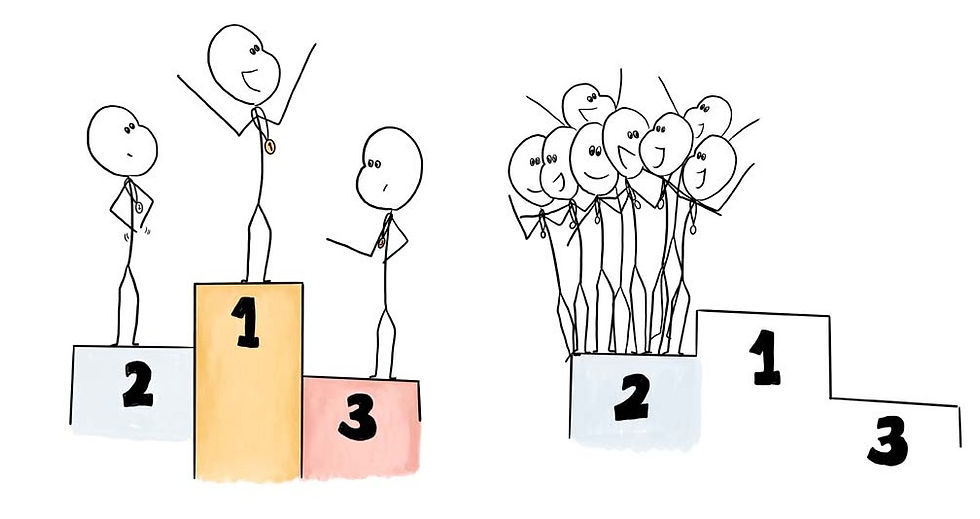Equality in Scandinavia
- Julien S Bourrelle
- May 5, 2024
- 2 min read
"Equality is not about equality of opportunity, it is about equality of results."
This understanding of equality influences many aspects of the Scandinavian societies:
- the education system
- the tax system
- the welfare system
- the unions
- the work environment
- the way promotions and public acknowledgement is given
- the way public funds are allocated, etc.
In theory, an egalitarian system ensures a society where people can flourish, with everyone being more or less equal. However, it may easily be misused, taken advantage of or negatively affect one's motivation to achieve more than average.

When you are struggling, the society will help you.
When you are succeeding, you will be asked to help those who are struggling,
rather than being pushed further so that you can reach your full potential.
This is the reality in which Scandinavian children are raised.
It influences the way people interact for life,
and creates the basis for the Scandinavian egalitarian society.
There is a shared understanding that the "strong" shall help the "weak" so that all stand equal in the end.
Critics of the Scandinavian egalitarian model will argue that the systems does not encourage excellence, but instead pushes "The most talented to help the less gifted so that all end up being average".
Equality is understood differently in different cultures and it is crucial for success that those working with different cultures understand what it implies. I explain these implications in my lectures and courses, how it influences social status, trust, politeness, motivation, collaboration, competition, decision making, etc.
You can also watch my TEDx for free online where I discuss some aspects of equality or read our books to learn more.







